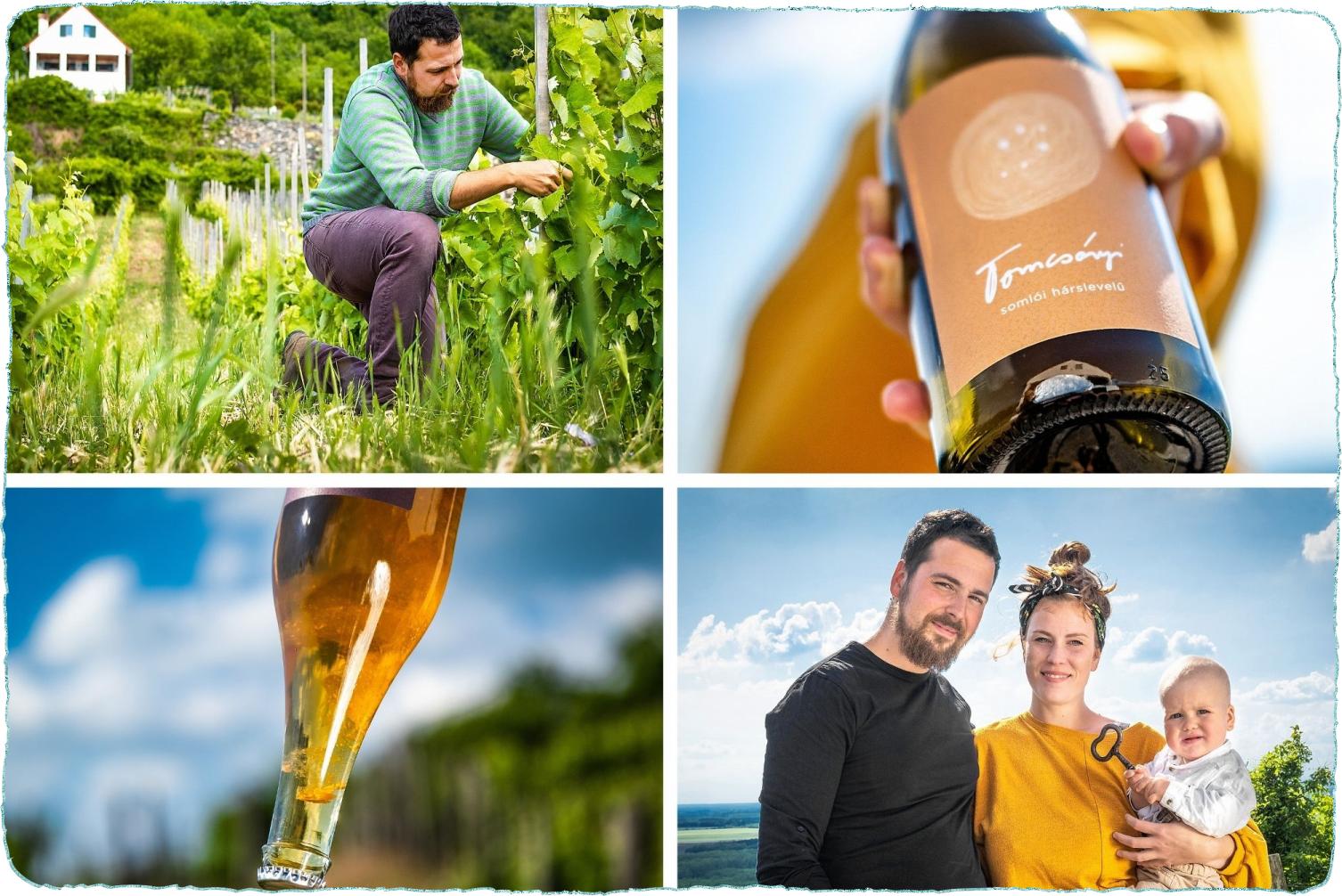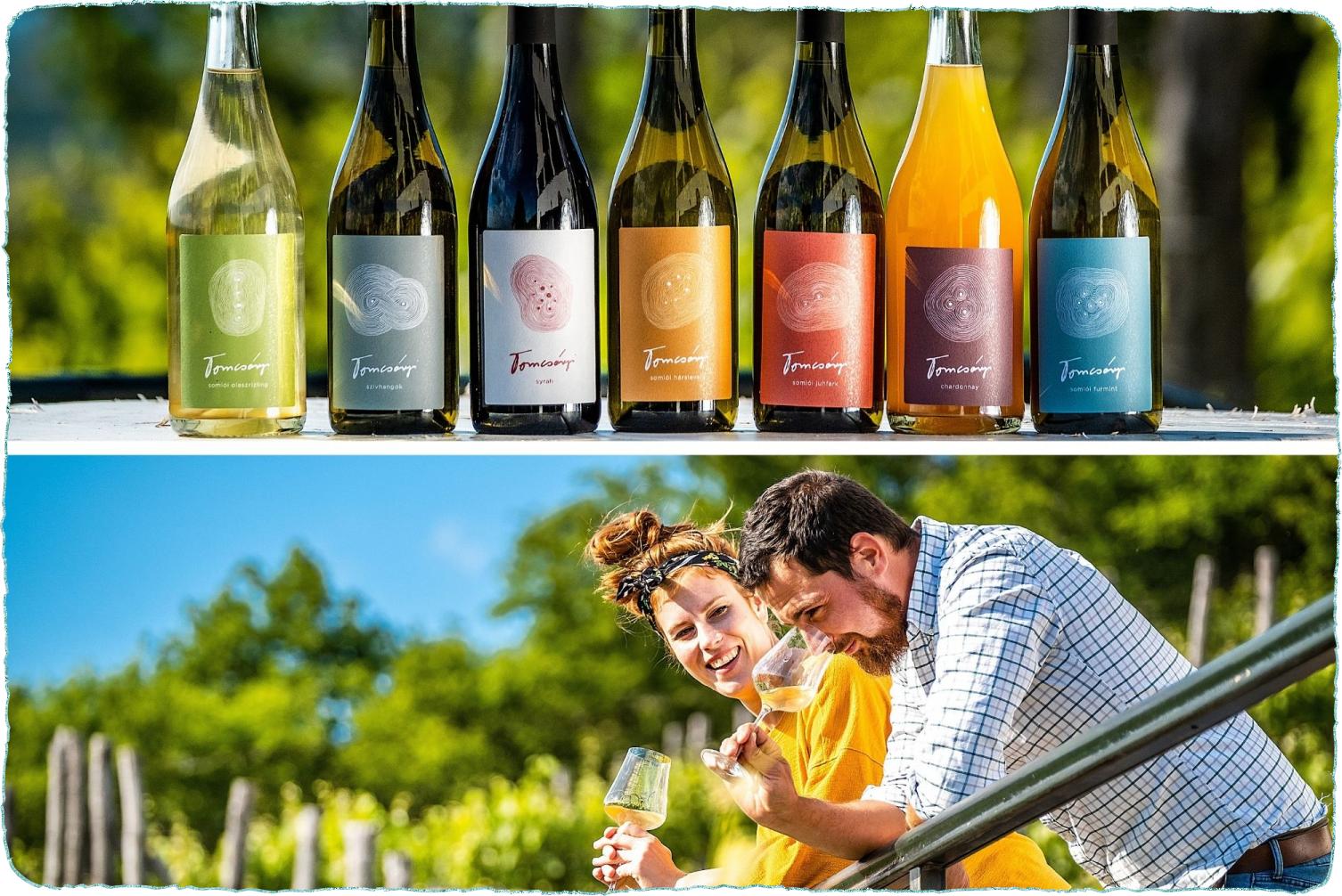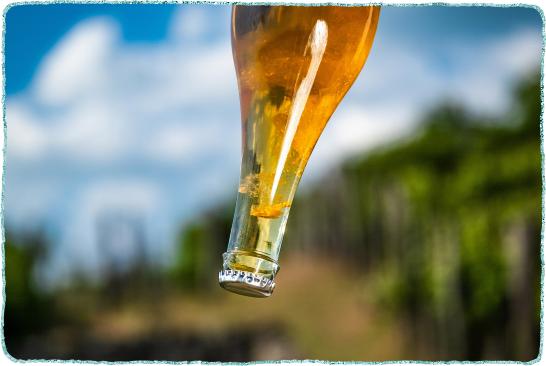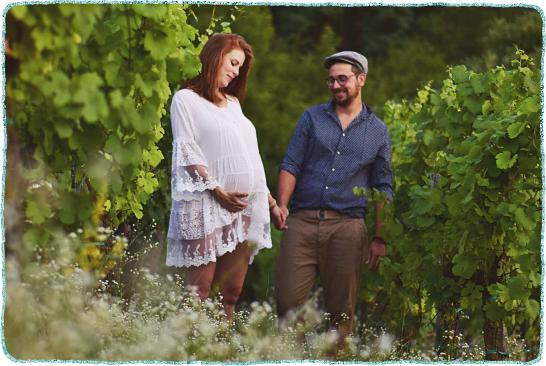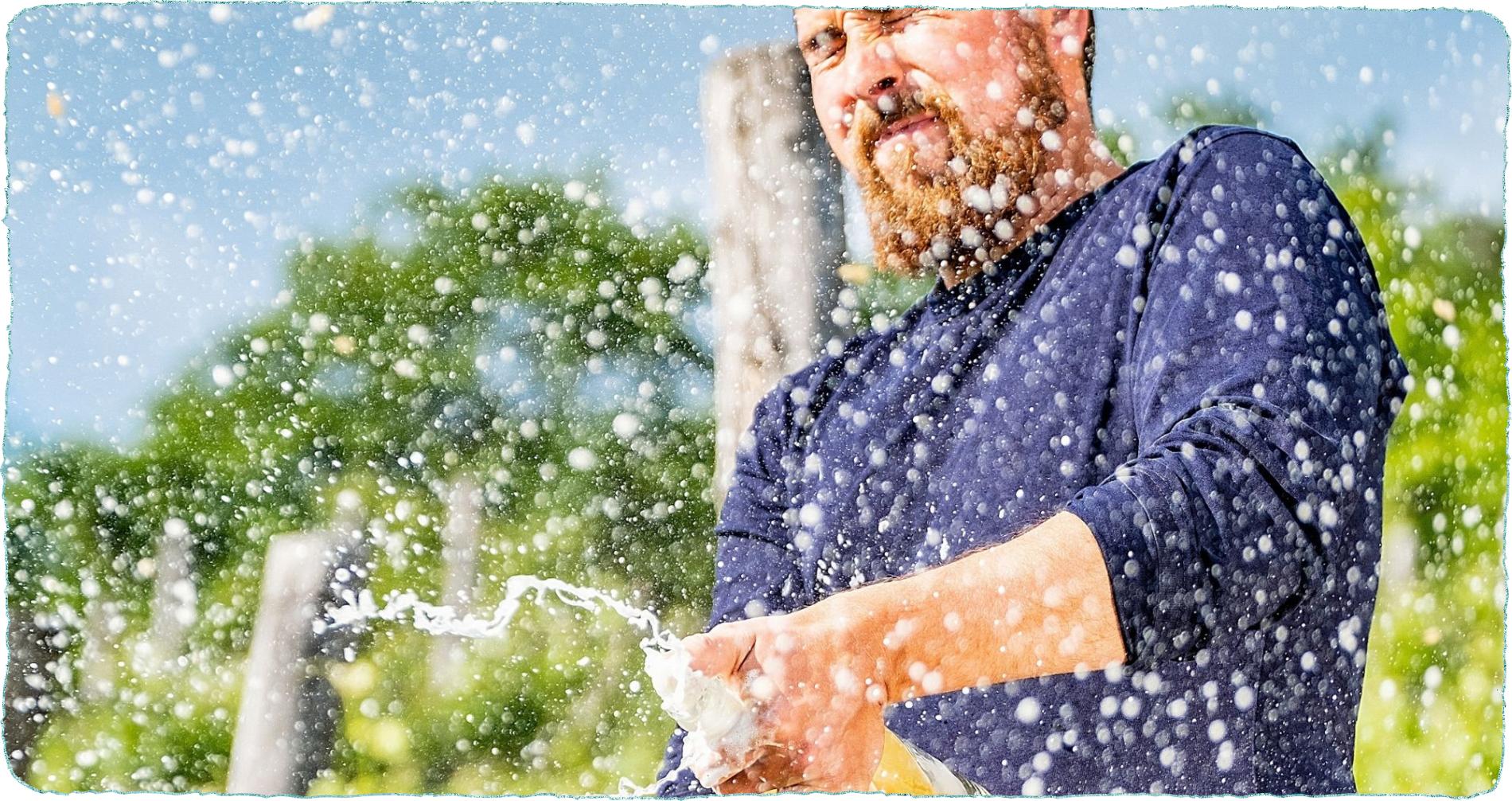
Author: Adrián Szász
Photos: György Nagy Jr.
Published: Agro Presztízs Magazin
Though their family had not dealt with winemaking, a doctor couple decided to buy a small land with a house and some rows of grapes. Their son, Árpád Tomcsányi (Á) studied Hungarian literature and linguistics and several years at the University of Theatre and Film Arts, started winemaking with his wife, Nóra Hollósy (N) in 2016. Nóra gave birth to their first child half a year ago: „when we decided to have a child, we considered timing very important: the baby had to be born outside vintage season. And Vilmos was born one week before vintage” – laughed the owner of Tomcsányi Family Vinery (Tomcsányi Családi Birtok), who has finished a winemaker course and a high-level sommelier school. They apply organic producing with biodynamic elements, and they are up to try themselves in the field of natural wines.
Your decision of becoming a winemaker seems to have come out of blue. You were standing among the grapes and… what was the first step?
Á: I visited other winemakers on the Somló hill – such as István Spielberg – to get familiar with the profession, to work in vineries, to work with grapes. I helped Ambrus Bakó with the harvest, I spent some day at Szászi Vinery, I was wild camping on the hill, I washed at the well in the morning, I grabbed some pastry in the shop and went to work. It is a much better way of learning winemaking than attending any school. I have been managing our estate on my own since 2017, and gradually I could buy more grapes from the neighbors. Now we have two and a half hectares in five separate parcels on the Western side of the hill. It is more difficult to work on these fragmented parcels, but all the parcels have very specific features. We aim to produce the most characteristic types: juhfark, hárslevelű, welschreisling and furmint.
How was your arrival received by the Somló-hegy community?
Á: I came to realize that when someone gets to a place where he feels some sort of “belonging”, integration comes naturally. We often get together with the locals, I do not experience any rivalry here, I mean, even if someone chooses to buy your wine, it does not exclude that they will buy mine as well. We produce together. We taste each other’s wine. It was an important aspect from the beginning that we would adopt organic methods, and it affected our relationships as well, as we could brainstorm much more with those who follow the same principles.
NATURAL WINES AND COMMON AFFAIRS
What was the first vintage like, and how did it affect your further plans?
Á: I had never harvested before 2016, the day before the actual harvest I had been watching Youtube videos about how to do it. But after a couple of yours, we came to point that following gentle cultivation, we try to interfere in the process as little as we can. Similarly to unfiltered beers, one can taste unfiltered wines too. We harvest the grapes, press the grapes and we let it ferment it spontaneously without adding enzymes, nutritive salts, acid or sugar. These wines are different from what people are used to.
N: - These are called natural wines, they will probably not be widely popular in Hungary, but they have been having a rising popularity in Western Europe and Scandinavia for a long time. There is hardly any restaurant where natural wines are not available.
Á: - Since the industrial revolution, the application of chemicals (herbicides, fertilizers and insecticides) in winemaking has become more general, and after a certain time it can cause problems for the vineries. Fermentation stops, so people start using chemicals for that too. But since the ‘60s, there has been a rising interest in naturalness in France and Germany. Talking to producers with this attitude and also inspiring ourselves, we make a podcast with the title Borivók [wine drinkers]: we visit winemakers, we talk, we taste wines, and then we make a radio show about it.
Where could you find people who share your thoughts?
Á: - Fortunately there are some winemakers like us in Hungary too, but if we go further, we go to Slovenia, Burgenland or Slovakia. And concerning our plans, at first we were only looking for a hobby, then we aimed to earn the money that could cover the price of petrol and the barrels. We got much help from our family, but know we must focus on making a living for the family. It is feasible with the current dimensions, so we do not really want to expand; we want to cultivate the available land on a higher level.
What is your division of labor like?
Á: - I work in the grapes while Nóri is with Vili, of course, but she helps with everything. Her specialties are ideas and criticisms… (laughs)
N: - Árpi expects me to be honest, but not too honest… (she laughs too)
Á: - We make decisions about future directions together, it is important that we improve together. It is a great thing for winemakers that they can share their profession with the whole family. Others get home at about 6-7 in the evening, and they are glad to leave their job behind for the rest of the day, their partner might not even understand when they speak about their job. However, when you share your profession with your family, it becomes a common affair.
N: - Last year was a milestone, because I was still studying and I was pregnant with Vili, while Árpi was working with the grapes in 80 per cent of his working hours. He did not want to delegate any tasks. We decided to move to a smaller flat in Budapest, and we also bought a little family house on the hillside besides the woods, it needs to be renovated, but we hope we can move in very soon.
HUMILITY TOWARDS NATURE
But you are still commuting between Somlószőlős and the capital…
Á: - In order to develop the vinery, we need to make a living, solidify our financial background, but our spiritual and mental base is in Somló. It would be nice to keep our intellectual jobs besides the physical work with the grapes. Our profession in film making provides us with the flexibility required for this, as we can already spend four days a week at the vinery, and three days in Budapest. Indeed, there are some tasks that I do not want to delegate to others, such as the pruning. But I get some help from the village when it comes to tying and managing vines.
N: - Árpi leaves for work in the morning, comes back at lunch time, drinks a coffee, we talk, and, if there is much to do, he comes back after dusk. He does the spraying on foot, with a back sprayer and using homemade tea, prepared by himself. He wanted to create the mixture himself, so he did not let anyone help in. We have recently bought a tractor, so we can reduce the time of the work, which used to take several days, to only half a day. This is a great ease!
I have read you think of your plantation as a garden. What do you mean by that?
Á: - If you are not thinking in monoculture, your approach to tillage will be different. We sow the seeds of cover vegetation in between the grape rows, as it returns nutrients to the soil making it livelier, and it is the most important thing according to our view. The more bugs there are, the richer the ground’s life is. Moreover, we planted some fruit trees, and we may have sheep in the future, and some bee families too… I got to know a beekeeper on the hill, I would like to help him with his work to learn his tricks, and if it works out fine, I may also buy one or two bee families next year. I would like to learn this too, in order to make our life richer over there.
Biodiversity and Biodynamics. You work by these keywords, but what do you mean by that?
Á:- An agricultural way of thinking, which sees life from a more complex, wider and more universal point of view. The most important thing is the healing of the soil, it is the cornerstone of everything. The vineyard needs to be seen as a unit, it feeds on what is there. So animals are also needed.
N: - As we started to make wine with the organic and biodynamic approach, we immediately realized that this world suits us the best. As if the thoughts behind the making were apparent in the wine. István Bencze, a winemaker friend of ours often says that people are always trying to beat nature. However, Biodynamics works just the opposite way, it shows humility towards nature. It considers the position of planets and the change of seasons, just like people did in good old times. These factors have a serious effect on our environment.
GRAPES ARE GRATEFUL FOR YOUR CARE
Besides all these, do you have any specific message that you hope your wines will convey?
Á: - Most importantly, we would like to learn to slow down our life, to focus on the values that we find essential.
N: - Many people are pursuing some sort of illusion, but it would be better to live for those things that are real and important. Moreover, due to our work, we spend much time on social media platforms. I often feel that I am wasting so much energy on that, which is the opposite of slowing down. It would be so great to live differently!
Á: - Maybe if people can give up on some of their material needs, it would be easier to become free. We can pay much more attention to each other when we are in Somló. I do not even like to stay inside the house until the sun sets. I work during the day, then we take a walk and only after dusk do we go inside.
N: - It is a fair question though, if our children will like this lifestyle or not. The members of great winemaker generations either adore this profession or hate it, as they are forced to take part, for example, in the hoeing or the extracting with their father. Parents should make their children love these without pushing it… and then, of course, children will decide what they want to do.
What is your experience after the first years: can anyone learn winemaking or is it the matter of talent?
Á: - Most of it can be learnt, I suppose, but… sure, schools can teach how tastes and scents can tell you about the place of origin and procedures of each wine, but sometimes I feel it might be overcomplicated. Eat and drink naturally, talk and enjoy yourself with a bottle of wine.
N: - People say that a wine is just like its maker. When you take good care of it, do it with your heart, and you do not see it as the way of making money, the wine will benefit from it. I do not if an everyday customer can feel it or not, but grapes are grateful for your help.
You still have a lot to do, what gives you your everyday motivation?
Á: - For me, making natural wine, which is like the ones made about 1000 years ago is a motivation. And besides, Somló being a historic wine region is itself very inspirational, I feel responsible. The wine I make must be worthy of Somló’s traditions. That is why the there are three things on the label: the hill where we are, the grape that we work with, and the fingerprint that we leave behind. These three things make up what we do: the region, the grape and the invested work. This is what inspires me every morning.
N: - And making our own product. We do not work here for a firm that can exploit us for the profit. This is ours, and we can take responsibility for what we are doing here.
Á: - Our own products with our own labels in our own bottles. And in our own tummy sometimes! (laughs)
